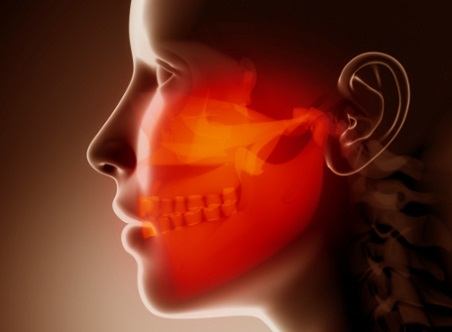Vitamin D Receptor and CYP450 Enzyme Dysregulation May Influence Oral Cancer Treatment
Nikhil Prasad Fact checked by:Thailand Medical News Team Feb 20, 2025 1 month, 3 days, 20 hours, 52 minutes ago
Medical News: Scientists Uncover Potential Link Between Vitamin D and Oral Cancer
A team of researchers from the University of Nevada-Las Vegas School of Dental Medicine has made a breakthrough discovery in understanding how oral cancer responds to Vitamin D. Their study suggests that Vitamin D receptor (VDR) and certain enzymes responsible for Vitamin D metabolism may play a critical role in determining how oral cancer cells react to treatments. The findings may open new doors for alternative therapies and early screening tools.
 Vitamin D Receptor and CYP450 Enzyme Dysregulation May Influence Oral Cancer Treatment
Vitamin D Receptor and CYP450 Enzyme Dysregulation May Influence Oral Cancer Treatment
Vitamin D has long been associated with numerous health benefits, particularly in maintaining strong bones, supporting immune function, and reducing inflammation. However, its role in cancer prevention and treatment remains an ongoing area of scientific investigation. This
Medical News report highlights the significance of the new study, which explores the interaction between Vitamin D metabolism and oral cancer responsiveness.
How the Study Was Conducted
The research team conducted their study using well-characterized oral cell lines, including both normal and cancerous tissues. By employing molecular analysis techniques such as quantitative polymerase chain reaction (qPCR), they examined the expression of Vitamin D receptors and various enzymes, including the CYP450 family, which are known to be involved in Vitamin D metabolism.
The researchers focused on specific oral cancer cell lines (SCC4, SCC9, SCC15, SCC25, and CAL27) and compared their responses to two forms of Vitamin D: Vitamin D2 (ergocalciferol) and Vitamin D3 (cholecalciferol). Their findings revealed stark differences in how these cells reacted, based on the presence or absence of key metabolic enzymes and receptors.
Key Findings of the Study
The study’s results revealed intriguing patterns in how different oral cancer cell lines respond to Vitamin D. Some of the major findings include:
-Role of Vitamin D Receptor (VDR): Normal cells expressed high levels of VDR, enabling efficient uptake and processing of Vitamin D. However, one particular oral cancer line (SCC15) lacked VDR expression entirely, making it less responsive to Vitamin D treatment.
-Impact of FOK1 Polymorphism: The study examined the presence of the FOK1 polymorphism in VDR, a genetic variation that may influence Vitamin D function. SCC15 cells lacked both VDR and FOK1, indicating a complete loss of Vitamin D signaling capability.
-CYP450 Enzyme Deficiencies: The research identified significant gaps in the expression of enzymes responsible for Vitamin D metabolism. Most oral cancer cell lines were missing at least one essential enzyme, such as CYP2R1, CYP24A1, CYP27A1, or CYP27B1, which are crucial for Vitamin D conversion into its active form.
-Growth Inhibition by Vitamin D3: SCC25 cells, which lacked both CYP27A1
and CYP27B1 enzymes, showed the highest growth inhibition when treated with Vitamin D3. This suggests that some cancer cells may be more susceptible to Vitamin D-based treatments depending on their enzyme expression profile.
-Minimal Response in SCC15 Cells: In contrast, SCC15 cells, which had no VDR expression, exhibited minimal changes in growth when exposed to Vitamin D, highlighting the importance of receptor-mediated pathways in treatment effectiveness.
What These Findings Mean for Cancer Treatment
This study underscores the complexity of how Vitamin D interacts with oral cancer at the molecular level. The findings suggest that certain genetic and enzymatic factors influence how well oral cancer cells respond to Vitamin D. If further research confirms these results in clinical settings, it could lead to a new screening approach to determine which patients may benefit from Vitamin D-based therapies.
The implications of this research extend beyond oral cancer. Since Vitamin D has been studied for its potential role in other cancers, including breast, colorectal, and liver cancers, similar mechanisms might be at play in these malignancies. The study suggests that analyzing a patient's VDR status and CYP450 enzyme expression could serve as a predictive tool for treatment responsiveness.
Moving Forward with Vitamin D Research
Despite these promising findings, the researchers acknowledge the need for further studies to validate their observations in actual patient samples. Large-scale clinical trials could help determine whether testing for VDR and CYP450 enzyme expression should be incorporated into routine cancer screenings.
Additionally, future research could explore ways to enhance Vitamin D sensitivity in resistant cancer types.
As scientists continue to unravel the role of Vitamin D in cancer biology, this study contributes to a growing body of evidence supporting its potential as a complementary treatment strategy. If harnessed correctly, Vitamin D-based therapies could provide a non-toxic, cost-effective option for managing certain types of oral cancer.
The study findings were published in the peer-reviewed journal: Targets.
https://www.mdpi.com/2813-3137/3/1/6
For the latest
Cancer News, keep on logging to Thailand
Medical News.
Read Also:
https://www.thailandmedical.news/news/indonesian-study-explores-viruses-and-their-link-to-oral-potentially-malignant-disorders
https://www.thailandmedical.news/news/medical-researchers-in-thailand-discover-that-ebv-induced-linc00944-plays-a-key-role-in-oral-cancer-progression
https://www.thailandmedical.news/news/breakthrough-research-on-exosomes-and-their-role-in-oral-cancer
https://www.thailandmedical.news/news/potential-role-of-herbs-and-phytochemicals-in-treating-oral-cancer
https://www.thailandmedical.news/pages/thailand_doctors_listings
